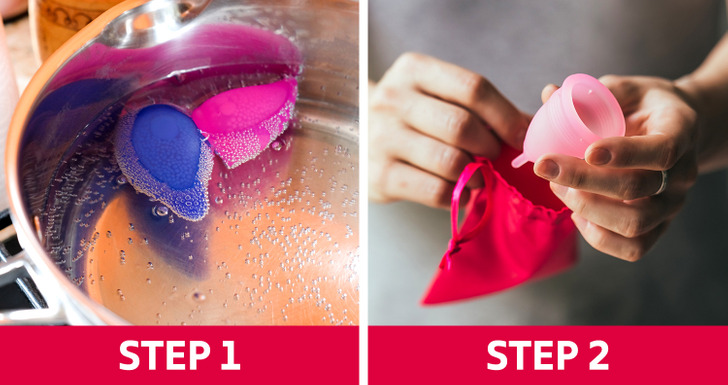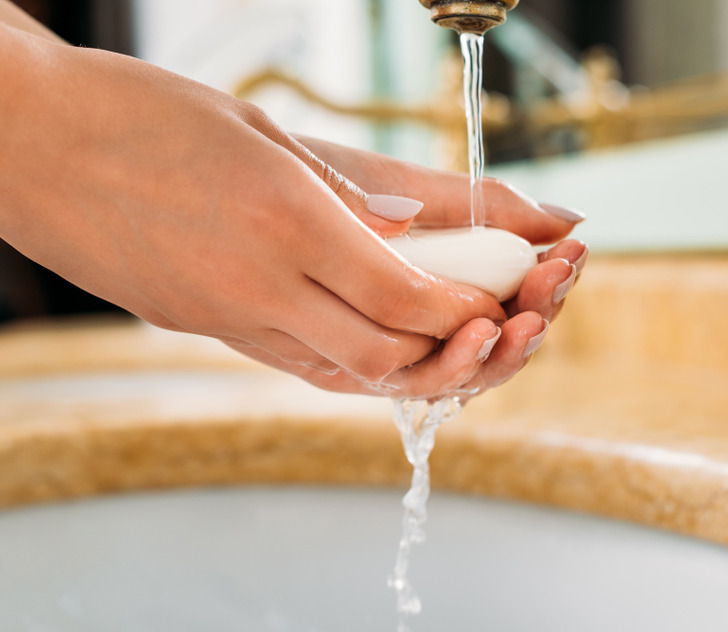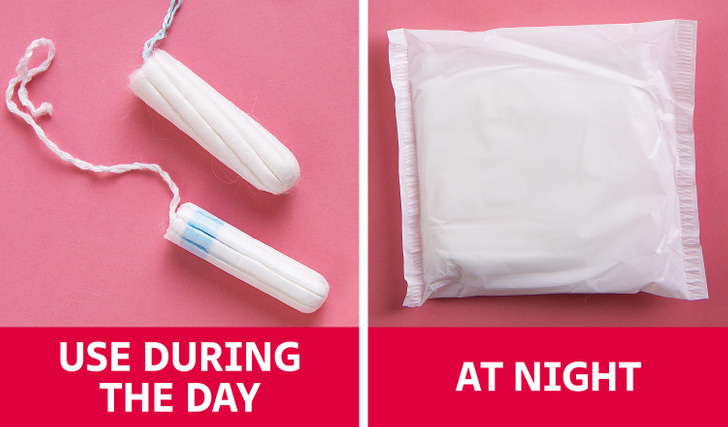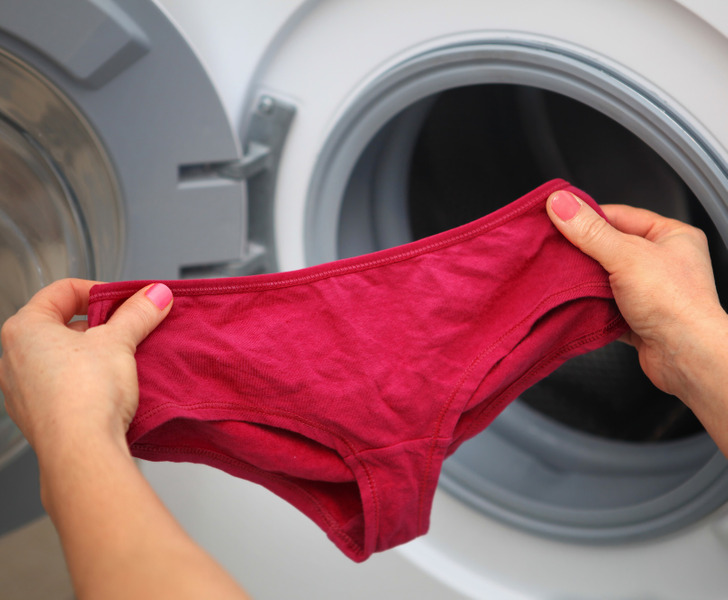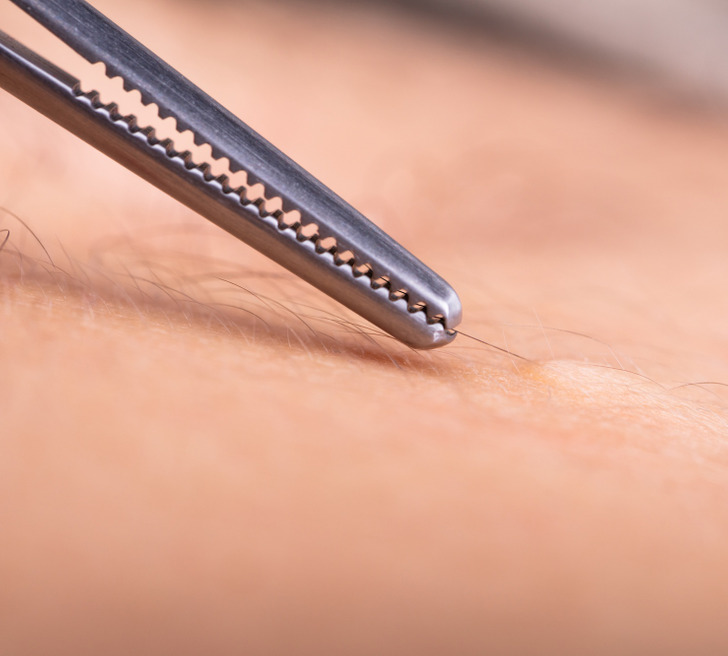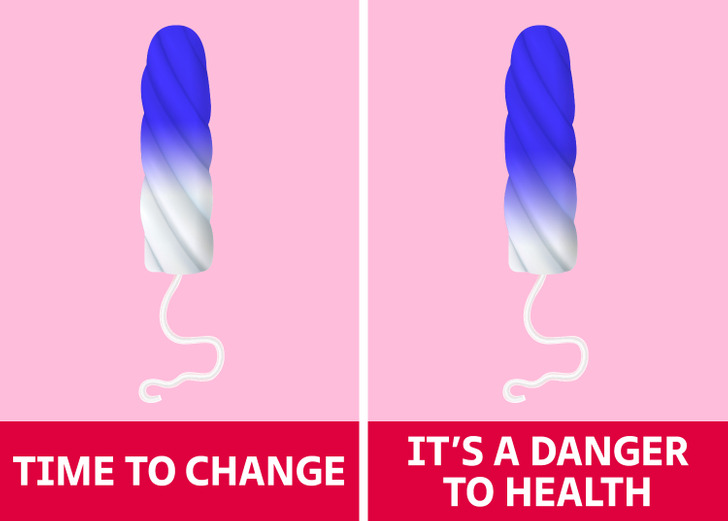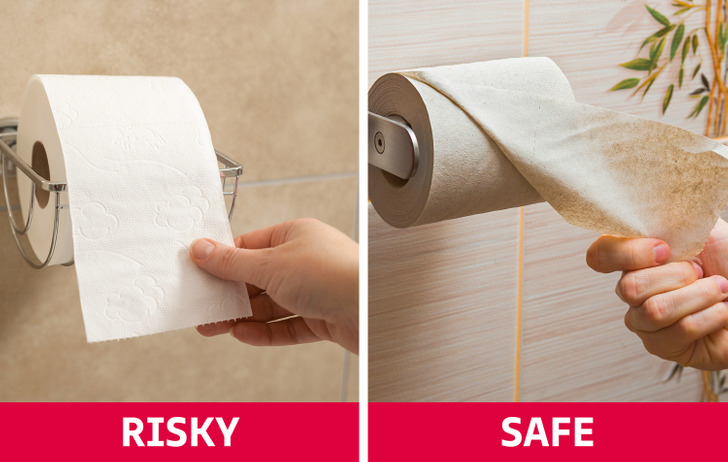12 Intimate Hygiene Mistakes That Can Cause Ladies Some Painful Moments in the Future
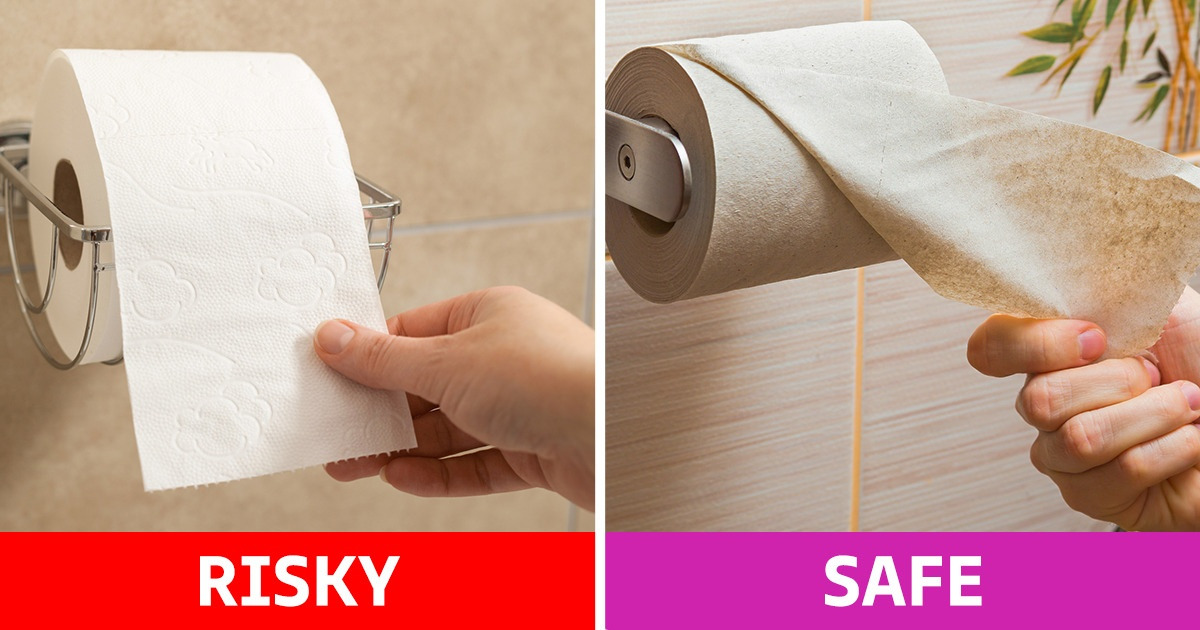
There’s a huge number of products on the market intended “for feminine intimate hygiene”, like soaps, shower gels, wipes, deodorants, and many more. However, this doesn’t necessarily mean that by using them you’ll be exercising proper self-care. Moreover, sometimes these products can even be harmful.
Here at CHEERY, we decided to find out what doctors have to say on this subject. We ended up with a list of a dozen hygiene mistakes that many women make daily, without realizing that they can have consequences later down the line.
Incorrect sterilization of the menstrual cup
Without regular, thorough cleaning, the menstrual cup will develop an unpleasant smell, as bacteria build-up can occur. To avoid this, many use antibacterial soap, baking soda, hydrogen peroxide, alcohol, or vinegar to sterilize the cup. This is not recommended and, what’s more, according to doctors, it’s strictly forbidden and poses a danger to your health.
You can find special products for sterilizing the menstrual cup in most pharmacies. However, if you haven’t got any, a mild unscented soap will do. After each use, doctors recommend boiling the cup for a few minutes and storing it in a designated bag until the next time.
Storing tampons and pads in the bathroom
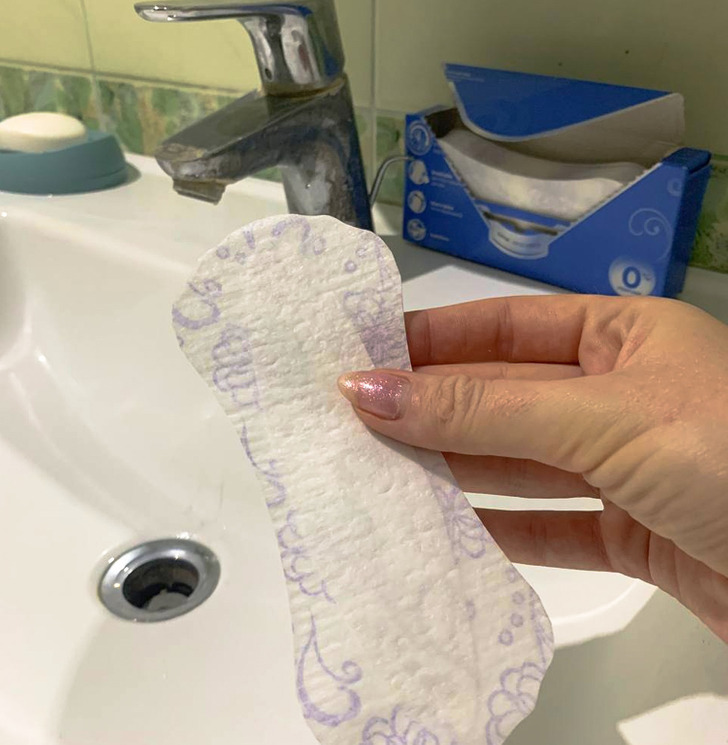
Women often keep tampons, pads, and panty liners in the bathroom, either on a shelf or in a cabinet. However, this isn’t a good idea, as the bathroom is one of the most humid places in the house. This means that these hygiene products will absorb unnecessary moisture, which may lead to the development of bacteria, making them no longer safe for use. Health professionals recommend storing these items in a cool, dry place.
Wearing damp clothes
As we’ve already learned, bacteria develop quickly in a humid environment. That’s why, straight after a workout at the gym or a swim in the pool, doctors advise taking a shower, drying off, and putting on dry underwear. Prolonged exposure to damp clothing can lead to thrush.
It’s also advisable to wear swimming clothes or sports clothes made out of material that promotes fast moisture evaporation. And, of course, avoid wearing very tight underwear, especially in hot weather.
Washing too often
Taking too many showers can have a negative impact on female intimate health. The body has its own natural microflora and frequent washing simply destroys it. Even during menstruation, it’s recommended to wash no more than twice a day. In addition, gynecologists advise avoiding scented products — they can also disturb the natural pH levels, and lead to an allergic reaction.
Going to bed while wearing a tampon
Wearing a tampon for over 4 hours poses a danger to your health. Therefore, going to bed still wearing one is not a good idea at all. You’ll have to get up several times during the night to change it. It’s much easier to use pads when you go to sleep.
Wearing old undies
According to gynecologists, underwear that you’ve been using for at least six months has to be thrown away. Even if it still looks good. Bacteria feels at ease on damp fabric and can stay there even after it’s been dried. So a good rule to follow is to renew all your undies every six months.
The best choice of fabric, when it comes to underwear, is cotton, as it allows for airflow. Synthetic materials such as nylon and spandex, on the other hand, tend to retain moisture.
Using a sponge for the entire body
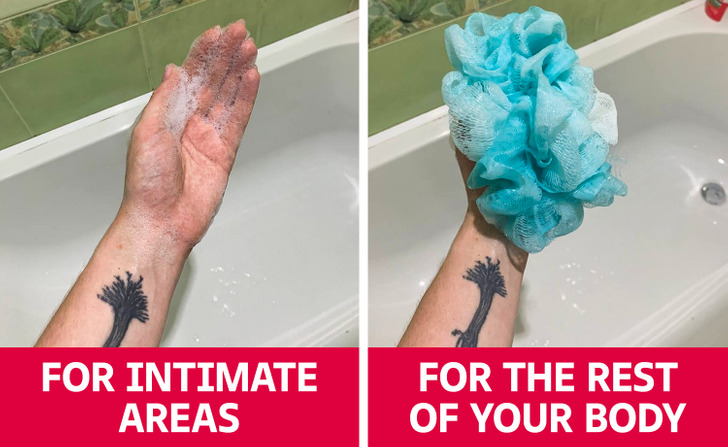
Many women use the same washcloth for the entire body but doctors insist that this is not the way to do it. It can introduce infections into the body and lead to gynecological problems. Moreover, according to research, it’s advisable not to use sponges or washcloths at all for intimate areas, no matter what material they are made of.
Pulling curly hairs with tweezers
Hair in the bikini area is thicker and coarser than on other parts of the body, so using tweezers “down there” can be not only very painful but also bad for your health. Injury to the skin can facilitate infection. Waxing, according to experts, is the best way to get rid of hair in this area.
Wearing a tampon or cup for too long
There’s a common perception that a tampon should be changed every 4 hours, and a menstrual cup every 6 hours. However, everybody is different and you may need to change your hygiene product much earlier. Don’t wait for “the time” to change it. The main rule to follow in this case is don’t let the tampon or cup become full.
Using scented toilet paper
Doctors strongly advise against scented toilet paper. The chemicals used in making it can include dyes, fragrances, and even bleach! All these substances put users in danger of developing allergies. In addition, according to dermatologists, bleached toilet paper can also be hazardous to health. The best option, they say, is unbleached, odorless paper.
Wearing pantyhose
Scientists have concluded, through research, that it would be healthier for women to give up pantyhose in favor of stockings. It’s all due to the upper part of the pantyhose. The synthetic material used to make them retains heat and moisture very well, which leads to the growth of bacteria and yeast, especially in hot weather. Not to mention, you should never wear pantyhose without underwear.
Storing razors horizontally
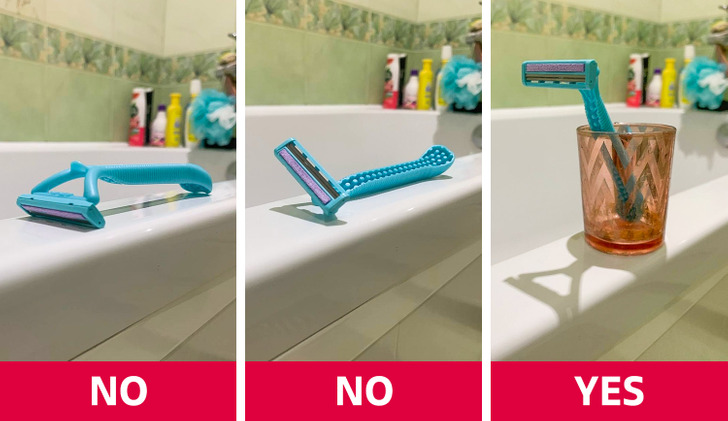
When the razor is placed horizontally, it can’t drain away all the excess liquid. Experts claim that to avoid irritation after shaving and to reduce the risk of infection, the razor must be properly cared for.
After use, the blade should be rinsed under a high-pressure stream of hot water. Once you’re sure there’s no hair or skin left on the blades, disinfect it with rubbing alcohol and place it vertically, for example in a glass, to allow any excess moisture to drain away from the blades.
What else would you add to this list?
